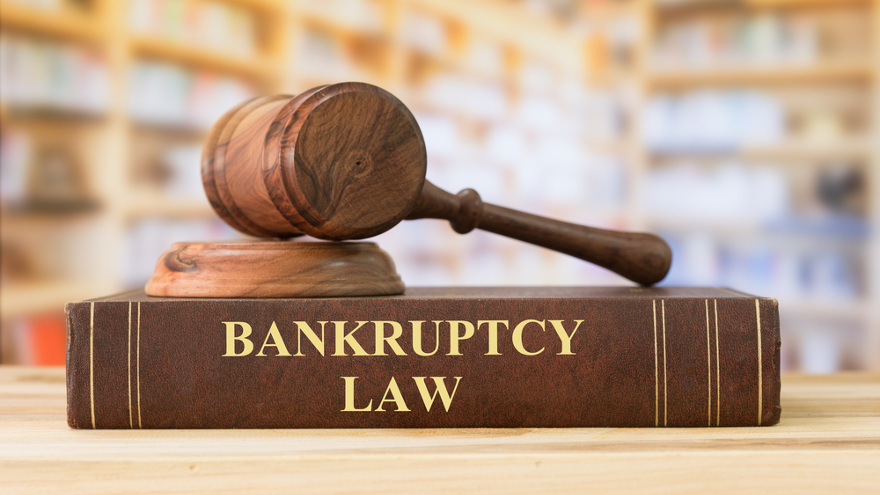5 questions about bankruptcies & repossessions with Weltman, Weinberg & Reis

By subscribing, you agree to receive communications from Auto Remarketing and our partners in accordance with our Privacy Policy. We may share your information with select partners and sponsors who may contact you about their products and services. You may unsubscribe at any time.
Weltman, Weinberg & Reis shareholders Milos Gvozdenovic and Scott Fink recently answered five top questions associated with bankruptcies and vehicle repossessions, which can become even more complex when those circumstances intersect.
“When it comes to auto loans and financing, a lien is more than simple paperwork. It protects you and your business if and when bankruptcy situations arise with your debtors,” Gvozdenovic and Fink said in a firm blog post that recapped those questions and answers.
Here are more details from Gvozdenovic and Fink about this topic becoming even more relevant since bankruptcy filings have been climbing for 20 months in a row.
What is a reaffirmation agreement and how is it used?
First off, when a customer or member files for bankruptcy, they can’t omit or leave any outstanding debts out of the process. However, they can voluntarily reaffirm any debt, which allows that debt to survive the bankruptcy discharge.
The reaffirmation agreement is a document, filed with the bankruptcy court, that outlines the loan details, collateral and monthly payment schedule. It is signed by both the debtor and creditor. When the Agreement is filed with and approved by the Court, the auto loan is treated as if it was never part of the bankruptcy in the first place. You can send billing statements, conduct collection phone calls or mailings, and repossess the vehicle if they fall behind on payments.
Subscribe to Auto Remarketing to stay informed and stay ahead.
By subscribing, you agree to receive communications from Auto Remarketing and our partners in accordance with our Privacy Policy. We may share your information with select partners and sponsors who may contact you about their products and services. You may unsubscribe at any time.
To reiterate, you move ahead as you typically would with the customer regardless of the bankruptcy filing.
Is a reaffirmation agreement considered voluntary?
Yes, reaffirmation is a voluntary process. A creditor cannot force a borrower to reaffirm the debt. Conversely, the creditor cannot be compelled to enter a reaffirmation agreement with the borrower. The agreement has to be affirmed by both parties.
Can you repossess your vehicle if the debtor does not sign a reaffirmation agreement?
Yes, you can repossess the vehicle as long as an automatic stay is not in place.
With that said, you cannot collect on a deficiency balance from the debtor following the repossession. If you resell the car and do not make enough to cover what is still owed to you, you can’t seek repayment to make up for lost value.
Are there “good terms” for a reaffirmation agreement?
When deciding the terms, you have some level of flexibility and control as the creditor. You can send out the terms as they are in the original loan agreement signed by the debtor. In some cases, you may consider altering the agreement terms. You are under no obligation to provide favorable terms in a reaffirmation agreement.
All that said, it may be in your best interests to consider terms that will entice the debtor to enter the agreement and fulfill remaining payments.
What is the significance of timely perfecting a vehicle lien and the consequences for the failure to do so?
Perfecting a vehicle lien is controlled under the Uniform Commercial Code (UCC) Article 9. It is critical to creditors for many reasons, including:
—Clear title transfer: It’s essential to record your lien on the title within 30 days from when the debtor takes possession of the vehicle. Timely perfection of the lien can protect the creditor against any issues arising, including loss of the lien if the debtor files for bankruptcy.
—Avoiding repossession challenges: If a debtor files for bankruptcy, a validly recorded lien speeds up repossession of the vehicle as there will be no complexities related to outstanding items.
—Legal protection: Creditors are required to release liens upon full repayment of the vehicle loan. A failure to do so may result in legal action against the creditor, including fees and penalties.
Gvozdenovic and Weltman, Weinberg & Reis attorney Garry Masterson delved into the topic even more through a webinar that can be viewed via this website.


